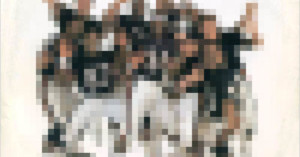
‘Super Bowl Shuffle’ Photographer Sues Over Use of Photo in News Story
The photographer who captured images of the Chicago Bears doing the "Super Bowl Shuffle" is suing the Chicago Tribune and Fox Sports for allegedly misappropriating the images.

The photographer who captured images of the Chicago Bears doing the "Super Bowl Shuffle" is suing the Chicago Tribune and Fox Sports for allegedly misappropriating the images.
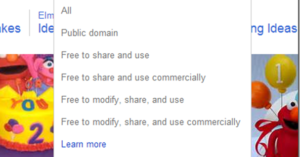
As the saying goes: "better late than never." In a move that puts Bing on par with the likes of Google's and Yahoo's image search engines, Microsoft's search giant has just added licensing refinements to its image searching capabilities as well.
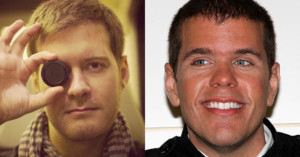
BuzzFeed isn't the only blog that's routinely accused of using photographs without permission. American celebrity blogger Perez Hilton (above right) is being whacked with a $2.1 million lawsuit by New York Times photographer Robert Caplin (above left) for publishing 14 photographs without permission.
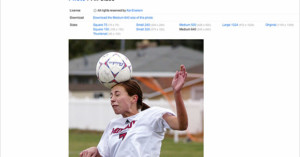
A photographer is suing the popular viral content aggregation website BuzzFeed for a whopping $3.9 million after he discovered that BuzzFeed had used one of his Flickr photos without permission in a comedy "roundup" article.

A handful of groups representing professional photographers are calling for a boycott of a Conde Nast photo contest whose terms they consider exploitative.

Charles Emir Richards is only a part-time photographer, but in the industry of photojournalism, being in the right place at the right time can be almost as important as photographic skill. And it's this that Richards has in spades: the right place at the right time.
The protests currently going on in Turkey that have attracted national attention are happening right in Richards' backyard. And as he's amassed more and more photos of the clash between people and police, he's taken to Facebook to share those photos freely, allowing anyone to use them in the name of spreading the word.

Unsplash is a new Tumblr creation by the folks over at ooompf that allows photographers to share a set of images for free (in exchange for exposure, we assume) while simultaneously allowing those in need of high-quality imagery a place to find it.

Major news website News.com.au made a pretty big mistake yesterday. At the top of an article titled "Bizarre: Man gropes woman's thigh, then photographs her", author Phil Hickey (or whomever was in charge) decided to use a photo of none other than DigitalRev TV's Kai Wong.
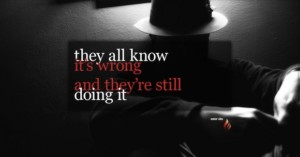
Canipre -- short for Canadian Intellectual Property Rights Enforcement -- is a Canadian anti-piracy company that has joined hand-in-hand with film studios and record companies to track down those who steal and share stolen content over the internet. On the surface there's nothing wrong with this, what is wrong is when an intellectual property advocate is found using photos without permission, which is exactly what happened to Canipre a couple of days ago.
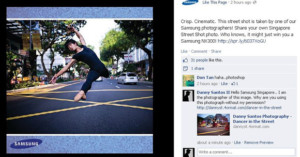
Samsung found itself in an embarrassing copyright infringement controversy earlier today after the company published a street photographer's work without permission as an advertisement on its Facebook page. It wasn't just the unauthorized use of the image that was embarrassing; here's the kicker: the photograph was actually shot using a Nikon camera.

The wildly successful Kickstarter campaign Blackprints is currently at the center of a heated controversy over stolen images that has already involved one copyright dispute. It seems that the campaign's creator, Sabrina Chun, might have taken to acquiring photos of cars off of the Internet, changing them to black and white minimalist versions, and selling them as part of this campaign. (See Update)

A "copyright land-grab" that will "permit the commercial exploitation of [orphan] images" and lead to a "firestorm" of litigation. Those are the terms being used by some to describe a UK bill that just received Royal Assent last week, despite drawing fire from writers and photographers the world over.
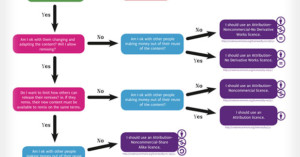
Creative Commons is a non-profit organization founded in 2001 that, over the years, has released a set of licenses that enable creative types to share their work with others. The content creator allows others to use their work, just as long as the users follow the guidelines set forth in that particular license. It's a "some rights reserved" system rather than an "all rights reserved system."
In the photographic community, some aren't fond of CC licensing while others are downright prolific about it. But if you're looking to license some of your content in this way, this useful infographic put together by CC Australia will help you navigate the common licensing combinations.
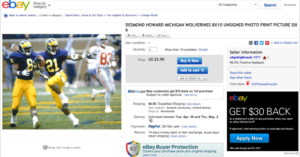
While browsing the internet recently, SportsShooter user Greg Bartram stumbled on an eBay store that was selling prints of several of his images. Upon taking a closer look, he realized that it wasn't just him, ukgobigblueuk is selling 8x10s of just about any sports, celebrity or political photo he can get his hands on -- and according to his description, he can "more than likely" get his hands on any photo you want.

There's a fine line between fair use, copyright infringement, and downright theft. And while some might argue where exactly that line stands, "rephotographer" and appropriation artist Richard Prince just got a Federal Appeals Court to take his side in what may turn out to be a landmark ruling regarding fair use.

I’d love to say I coined the term "Like farm", but it’s entirely possible I read it somewhere before, as a brief search on that term turned up other articles on the growing phenomenon of content farms on Facebook. For a while now, I’ve been watching my own news feed fill up with unattributed photos and artwork. And I think we've all seen the equally unattributed and ubiquitous quote art (either graphic design or simply pasted over photos). Although the amount of this content seems to rise and fall, it has seemed like it is growing of late. Or perhaps I've just become more sensitive to it?

Andy Baio has some experience with copyright infringement, especially where iconic photographs are concerned. In case you didn't read our previous coverage on the matter, his story goes something like this: in 2009, he put together an 8-bit version of Miles Davis' album "Kind of Blue" called "Kind of Bloop," and for the cover art he had a friend create a pixel-art version of Jay Maisel's famous cover photo.
Maisel wound up suing Baio for over $100,000 for the infringement, and despite an offer for free representation, potential court costs still forced Baio to settle out of court for $32,500. Baio wound up writing a long blog post about the matter, and now, a couple of years later, he's expanded on that post in the above talk he gave at Creative Mornings in Portland.
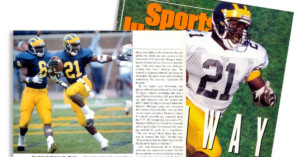
In 1991, photographer Brian Masck took one of the most iconic photographs in all of sports. Known forevermore as the "Trophy Pose," it captured then Michigan Wolverine Desmond Howard striking a Heisman pose IRL. Since it was taken, the photo has been used by everyone from EA to Nissan to Sports Illustrated, and several of them are now being sued by Masck for using the photo without his permission -- including Desmond Howard himself.

The Boston Marathon bombing was a horrific event that took three lives and left more than 170 people injured; the idea that somebody would try to profit from that is unthinkable. And yet, someone already has.
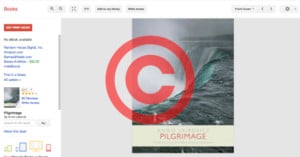
The National Press Photographers Association has decided to throw their hat in the ring with 15 other organizations that are all suing Google over what they see as "widespread, well-publicized, and uncompensated infringement of exclusive rights" perpetrated by the search giant's Google Books program.

In PDN's March issue, the magazine highlighted Cade Martin’s impressive ad work that he had done recently for Tazo Tea and Starbucks. As the main feature, it's only natural that one of those images ended up on the cover of the issue (pictured above). Not everyone, however, was as thrilled by Martin's work as PDN.
Photographer Rodney Smith has covertly spoken out about the cover on his blog. In a post titled "The Real Thing," he calls the image an imitation, and wonders why PDN would choose to applaud work that is, as he puts it, "by it’s [sic] very nature ‘second-rate.'"
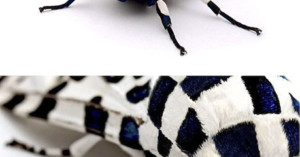
In the two photographs above, the bottom image is a photo-manipulation created using the top image. Are they completely separate works of art? What if we told you the second photo was created without the original photographer's permission and submitted to a contest as an original artwork? What if we told you it actually won?
That all actually happened last year, and the images are at the center of a copyright skirmish.

Want to turn your friend's Facebook photograph into a mug to sip your morning coffee from? A new service called Photos At My Door can help you do that. It's an app that can access any of your Facebook friends' public photographs and turn them into products ranging from photo prints and canvases to mugs and mouse pads.
If the thought of having your photos sold as commercial products without your permission makes you uncomfortable, you're not alone: the app is attracting criticism for it's apparently flippant views on photo copyrights.
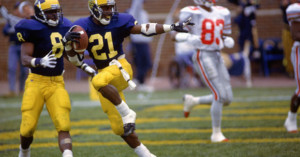
This famous photograph of legendary football wide receiver Desmond Howard is currently in the midst of a nasty legal battle. The photographer behind the image, Brian Masck, is suing Howard and a host of companies, claiming that his photo has been used without his permission for years for all kinds of commercial products and purposes.

How well does your favorite photo hosting and/or sharing service handle the copyright information and EXIF data of your photographs? How do the popular services stack up against one another in this regard?
Metadata handling isn't often discussed when photo sites are compared, but that's what the International Press Telecommunications Council (IPTC) has been devoting an entire study to. The organization has published its findings regarding which companies play nicely with your metadata, and which pretend it's not there.

The most recent copyright dispute to hit our radar is one between Canada-based Barbara Ann Studios and an Ottawa radio station called HOT 89.9. Each spring, the radio station runs a contest in which they get a couple married in 24-hours.
Ann isn't a big fan of the contest, and so when she saw her image was being used to illustrate the station's marketing kit, she began a dialogue with the company to get the image taken down and receive compensation for what amounted to commercial use of her image. That's when things got ugly.

In a copyright dispute with So Delicious this past week, photographer Theron Humphrey chose to follow in Brandon Stanton's footsteps and give the infringers a positive way out of the situation. Instead of getting the long arm of the law involved, Humphrey suggested that the offending company instead donate the money he was owed to charity.
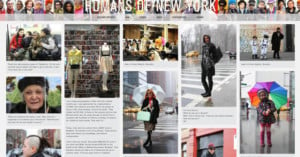
NYC-based street photographer Brandon Stanton's work has attracted quite a few eyes since he launched his Humans of New York photo project in 2010. Among those eyes were marketing folk at the clothing company DKNY.
Stanton and DKNY had a copyright infringement scuffle yesterday that resulted in DKNY donating $25,000 to the YMCA.

A serious car crash at the NASCAR Nationwide Series Drive4COPD 300 this past Saturday caused debris to go flying into the stands, sending a number of spectators to the hospital -- some with very serious injuries. A fan named Tyler Andersen was in the area where the accident happened, and had his camera recording video as the whole thing unfolded. After the incident made national headlines, Anderson posted the 1m16s video above to YouTube (warning: it doesn't show any injuries, but it's a bit disturbing).
NASCAR wasn't too pleased with the video, and sent YouTube a DMCA takedown request, claiming that it was a case of copyright infringement. YouTube complied and took down the video, sparking cries of "censorship."

Les Irvin, the man behind the biggest Joni Mitchell fan site on the internet, is being sued by celebrity photographer Charlyn Zlotnik over four photos that were uploaded anonymously in the comments section of his website.

Grammy Award-winning Jazz singer Esperanza Spalding is currently in the midst of a legal battle with photographer Kevin Ryan over the cover art on her 2012 album Radio Music Society (pictured above). The cover shows Spalding sitting atop a vintage boombox that is actually a sculpture made of pictures attached to a wooden box.
Spalding and her people chose to use the piece on the cover after discovering it at Brooklyn’s Galapagos Art Space. The issue is that they neglected to credit or license Ryan, who was the photographer behind the photos on the box.

In December 2012, Instagram took steps toward profitability by adding some controversial monetization-related sections to its Terms of Service. The resulting outcry led to key sections being restored to original 2010 versions, but that didn't stop a certain user named Lucy Funes from launching a class action lawsuit against the photo sharing service.
The latest news in the saga is that Instagram is now asking that the lawsuit be thrown out.
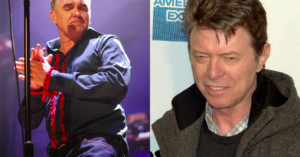
When we run into issues regarding photo usage, the photographer is typically involved in one way or another. A company may be trying to use their work without paying, or they might find derivative works of their photography in an art show.
But in this case, neither of the two people involved actually took the photo in question, they were in it. David Bowie is leaning on EMI UK to change the cover art on the re-release of Morrissey's 1989 single The Last of the Famous International Playboys, because it features a previously un-seen candid photo of the two musicians hanging out in New York.

Today is Data Privacy Day, and all of the major social websites have come out to play. Facebook is launching an "Ask Our Chief Privacy Officer" form, Google explained its approach to government requests for information in a blog post, and Twitter launched an entire website dedicated to transparency in all things data privacy related.

Copyright law is in place to protect artistic expression, not individual ideas. That was the crux of the reasoning behind a recent federal appeals court ruling that saw no infringement on the part of Sony. In the court's opinion, Sony's photo (right) was not nearly similar enough to Donald Harney's (left) and "no reasonable jury could find 'substantial similarity' between Sony's recreated photo and Harney's original."

The issue of publishing social media photos of breaking news without their owners' permission is in the news again. After a helicopter crashed in central London last Wednesday, the London Evening Standard found a photo snapped by a witness named Craig Jenner and shared on Twitter. Unable to obtain permission from Jenner prior to its paper going to the press, the Evening Standard went ahead and published the image on its front page.

Getting your photography removed from an offending website or Facebook page can be a hassle, and if you've never done it before, learning the proper process for any given situation can be a downright pain. Fortunately, there are awesome people out there who don't mind helping out their fellow photogs.
That's where James Beltz from PhotoTips and his new blog PictureDefense come in. What he's done is set up a free website where you can go and get step-by-step instructions on how to get your copyrighted photos removed from almost any type of website.

Copy protection and data encryption are standard in most storage media, but you don't often hear of copy protection as it pertains to memory cards. Although all SD cards come with a form of DRM copy protection (CPRM), it's rarely used; and something as common as re-formatting the memory card can erase protected sections that are required to make use of the copy protection in the first place.
Other copy-protected memory card options are marketed to/used mainly by companies, and not typical consumers. Seeing this market as an opportunity, Transcend Information recently announced plans to manufacture its own copy-protected SD and microSD cards and a corresponding reader.
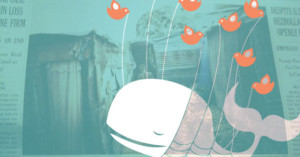
In one of the first major tests of intellectual property law involving social media services, a judge has ruled that news agencies cannot freely publish photographs posted to Twitter without the photographer's permission.

The last few days have been rough on BuzzFeed, as a Reddit outcry has gained more and more traction regarding some light painting photos the website used to create ads without seeking permission or giving credit.